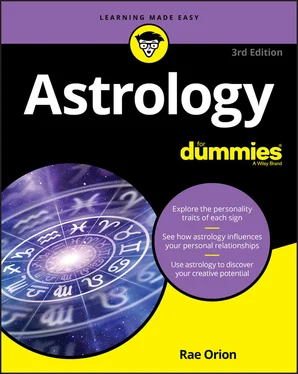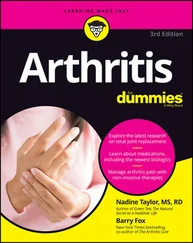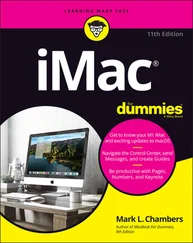1 ...6 7 8 10 11 12 ...25 Jupiter ruled Pisces and Sagittarius.
Saturn ruled Aquarius and Capricorn.
After Uranus was discovered in 1781, followed by Neptune in 1846 and Pluto in 1930, astrologers modified the system, allotting one sign to each of the newly discovered planets. Uranus was designated the ruler of Aquarius, Neptune was pronounced the lord of Pisces, and Pluto was delegated to Scorpio. Mercury and Venus continued to rule two signs each. Until recently, the most commonly accepted planetary rulers were as follows:
The Sun rules Leo.
The Moon rules Cancer.
Mercury rules Gemini and Virgo.
Venus rules Taurus and Libra.
Mars rules Aries.
Jupiter rules Sagittarius.
Saturn rules Capricorn.
Uranus rules Aquarius.
Neptune rules Pisces.
Pluto rules Scorpio.
Today, the consensus surrounding rulers has begun to unravel, with many astrologers giving more weight to traditional rulers than was the fashion only a few decades ago. Some astrologers have reverted entirely to the pre-industrial rulers, eliminating Uranus, Neptune and Pluto. Other astrologers have decided to keep the old rulers plus the new planets. The signs most affected by that approach are Scorpio, Aquarius, and Pisces, each of which can now boast two rulers, one traditional and one modern:
Scorpio is ruled by Mars, its traditional ruler, and Pluto.
Aquarius is ruled by Saturn, its traditional ruler, and Uranus.
Pisces is ruled by Jupiter, its traditional ruler, and Neptune.
As for Chiron, some astrologers believe that it rules Virgo, Pisces, or both. Others associate it with Sagittarius. Many don’t bother with it at all, and it has not been officially assigned to a sign. The same is true for other asteroids, dwarf planets, and astronomical points. Astrologers might pop them into a chart, but they have not given them dominion over particular signs.
Determining Planetary Dignities
Astrological tradition holds that, in addition to the sign it rules, each planet earns high grades in another sign — the sign of its exaltation . The planet operates less well in two other signs: the sign of its detriment , which is opposite the sign it rules, and the sign of its fall , which opposes the sign of its exaltation. Table 1-4gives you the details.
How does this affect your chart? A planet exalted or in its home sign (or domicile) expresses itself with ease and is accorded “dignity.” A planet in its detriment or fall — positions sometimes referred to as debilities — may feel impeded or weak. Take Mars. In Aries, Mars has no trouble being assertive. Aries supports that. In diplomatic Libra, the opposite sign, the warrior spirit of Mars feels tamped down, stifled. Each planet is happiest in the signs where it can best express its essential nature.
A planet can gain dignity in at least five ways. I’m only going to consider two: essential dignity, which depends upon the sign the planet occupies, and accidental dignity, which depends upon the house placement.
This isn’t the first thing to consider when doing a chart. But it does provide an additional bit of information, another point to consider. I pay particular attention when a planet occupies its home sign or sign of exaltation. No matter what else is happening with that planet, it is stronger than it might appear. The dignities are listed in Table 1-4.
TABLE 1-4Table of Essential Planetary Dignities
| Planet |
Rulership |
Detriment |
Exaltation |
Fall |
| Sun |
Leo |
Aquarius |
Aries |
Libra |
| Moon |
Cancer |
Capricorn |
Taurus |
Scorpio |
| Mercury |
Gemini |
Sagittarius |
Aquarius |
Leo |
|
Virgo |
Pisces |
|
|
| Venus |
Taurus |
Scorpio |
Pisces |
Virgo |
|
Libra |
Aries |
|
|
| Mars |
Aries |
Libra |
Capricorn |
Cancer |
|
Scorpio |
Taurus |
|
|
| Jupiter |
Sagittarius |
Gemini |
Cancer |
Capricorn |
|
Pisces |
Virgo |
|
|
| Saturn |
Capricorn |
Cancer |
Libra |
Aries |
|
Aquarius |
Leo |
|
|
| Uranus * |
Aquarius |
Leo |
|
|
| Neptune * |
Pisces |
Virgo |
|
|
| Pluto * |
Scorpio |
Taurus |
|
|
* Although astrologers have confidently named Uranus, Neptune, and Pluto as rulers or co-rulers of Aquarius, Pisces, and Scorpio, those planets have not been given signs of exaltation or fall. These things take time.
Another way to dignify a planet is by house placement. Imagine that the first house is equivalent to Aries, the first sign. If Mars, the ruler of Aries, happens to be in the first house, it is accidentally dignified, regardless of the sign it occupies. Similarly, Saturn is the ruler of Capricorn, the tenth sign, so it is accidentally dignified in the tenth house, no matter what sign it’s in. Table 1-5shows you where each planet is accidentally dignified.
 What do Muhammad Ali, Albert Einstein, and Kim Kardashian have in common? On the face of it, not much. But all three have Saturn accidentally dignified in the tenth house, a placement that correlates with success, public recognition, and fame.
What do Muhammad Ali, Albert Einstein, and Kim Kardashian have in common? On the face of it, not much. But all three have Saturn accidentally dignified in the tenth house, a placement that correlates with success, public recognition, and fame.
TABLE 1-5Table of Accidental Planetary Dignities
| House |
Accidental planetary dignity |
| 1 |
Mars |
| 2 |
Venus |
| 3 |
Mercury |
| 4 |
Moon |
| 5 |
Sun |
| 6 |
Mercury |
| 7 |
Venus |
| 8 |
Mars and Pluto |
| 9 |
Jupiter |
| 10 |
Saturn |
| 11 |
Saturn and Uranus |
| 12 |
Neptune and Jupiter |
Another major component of your chart is the Ascendant or rising sign — the sign that was climbing over the eastern horizon at the moment of your birth. It describes your mask or persona, the surface personality that you show the world.
Have you ever had a friend who was Miss Congeniality — until you got to know her? Did you ever encounter anyone who seemed standoffish and cold at first but warmed up later on? Do you know anyone whose devil-may-care, lighthearted attitude masks a calculating, manipulative mind? And have you ever wondered how you strike other people, especially when they don’t know you well? Your horoscope provides the answer. While your Sun sign may not be apparent to people, they definitely notice your Ascendant. It’s your image, your facade, your surface. Whether it clashes or harmonizes with your Sun sign, it describes the way people see you and the impression that you make. Indeed, some astrologers consider the ruler of the Ascendant — that is, the planet that rules your rising sign — to be the overall ruler of your chart.
No matter what your Sun sign is, any one of the 12 signs might have been rising over the eastern horizon at the moment of your birth. If you were born at dawn, when the Sun was just peeking over the horizon, you already know your rising sign: It’s the same as your Sun sign. If you were born at any other time of day, your rising sign and Sun sign differ.
Читать дальше

 What do Muhammad Ali, Albert Einstein, and Kim Kardashian have in common? On the face of it, not much. But all three have Saturn accidentally dignified in the tenth house, a placement that correlates with success, public recognition, and fame.
What do Muhammad Ali, Albert Einstein, and Kim Kardashian have in common? On the face of it, not much. But all three have Saturn accidentally dignified in the tenth house, a placement that correlates with success, public recognition, and fame.










